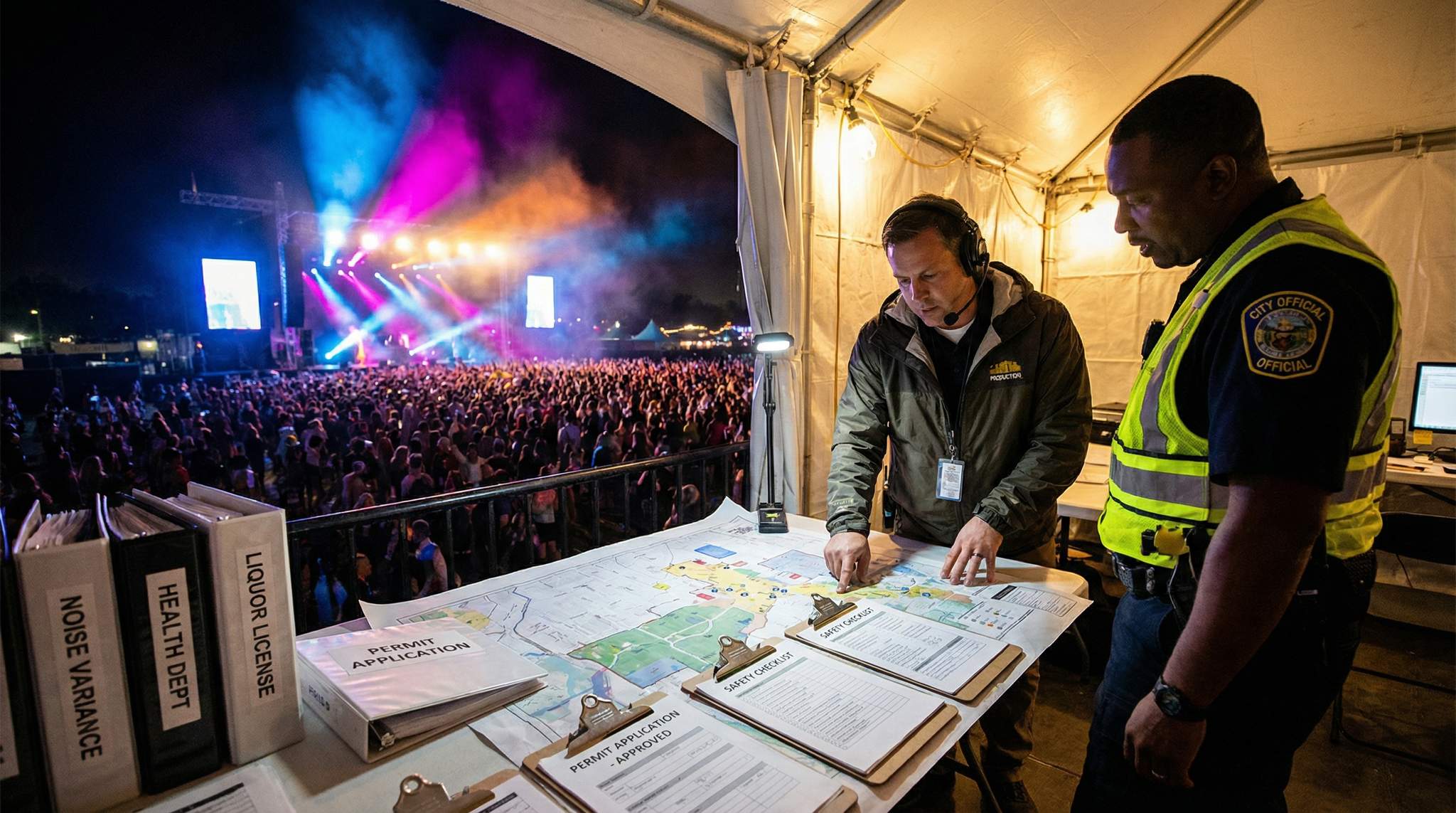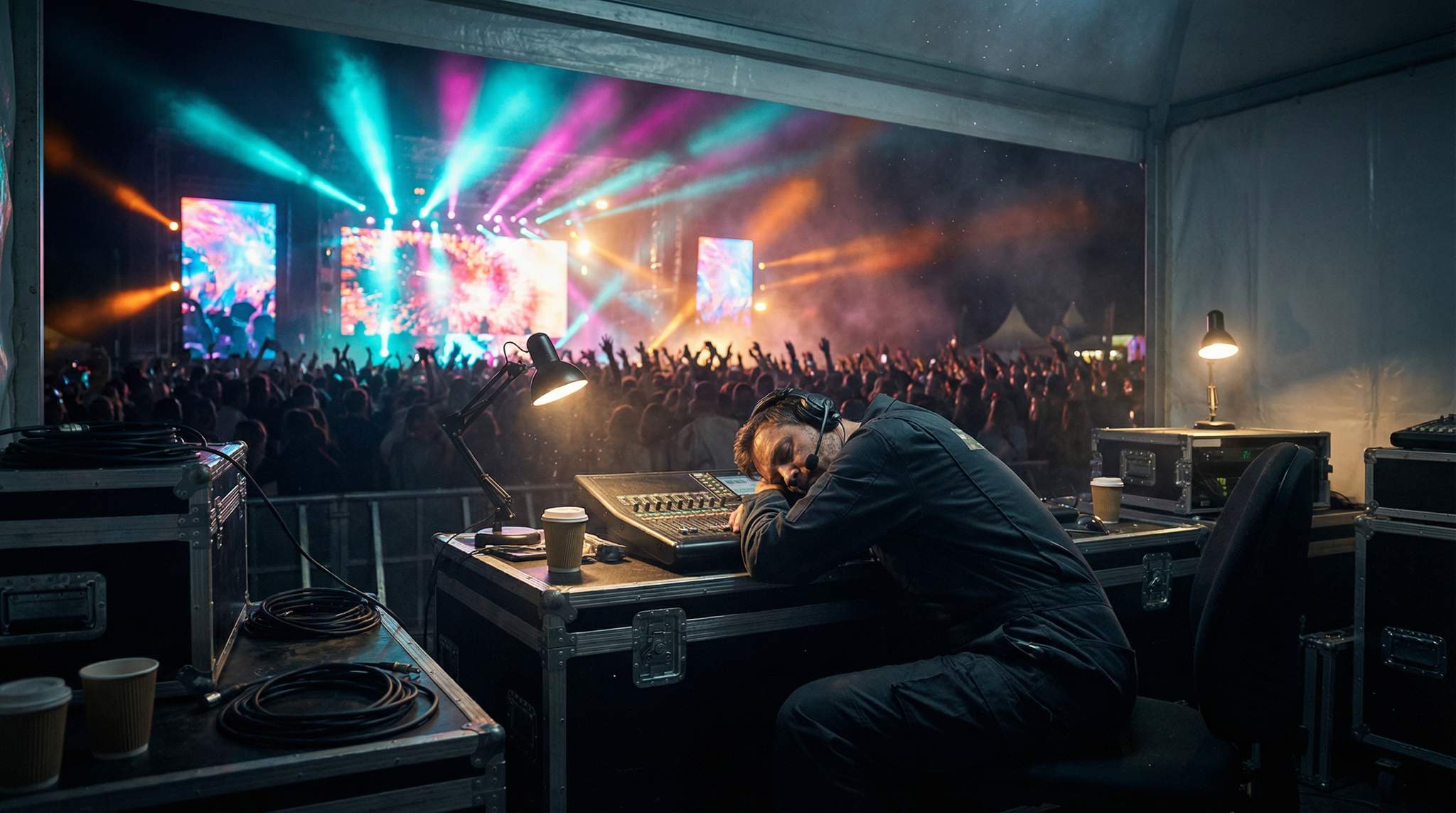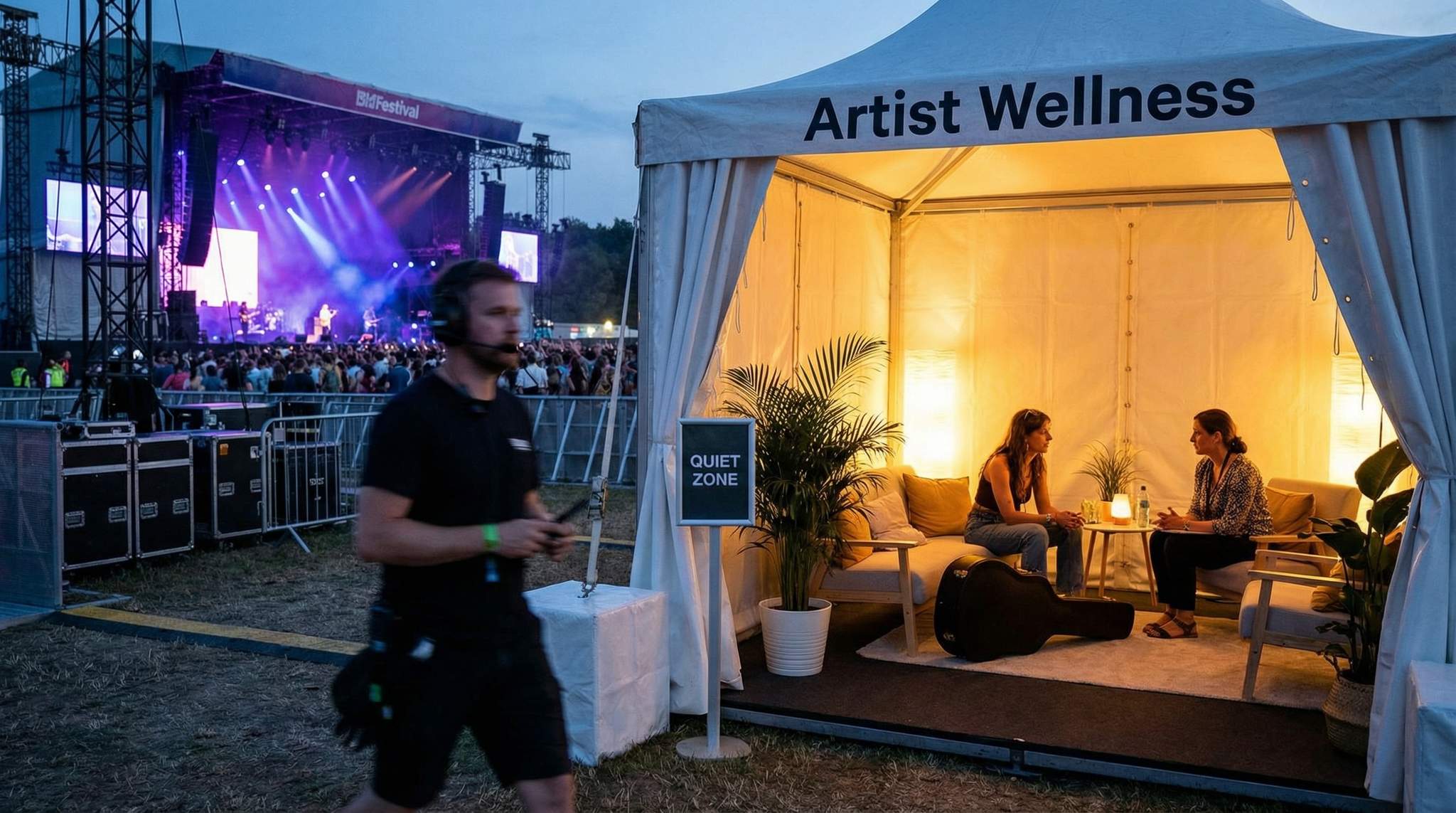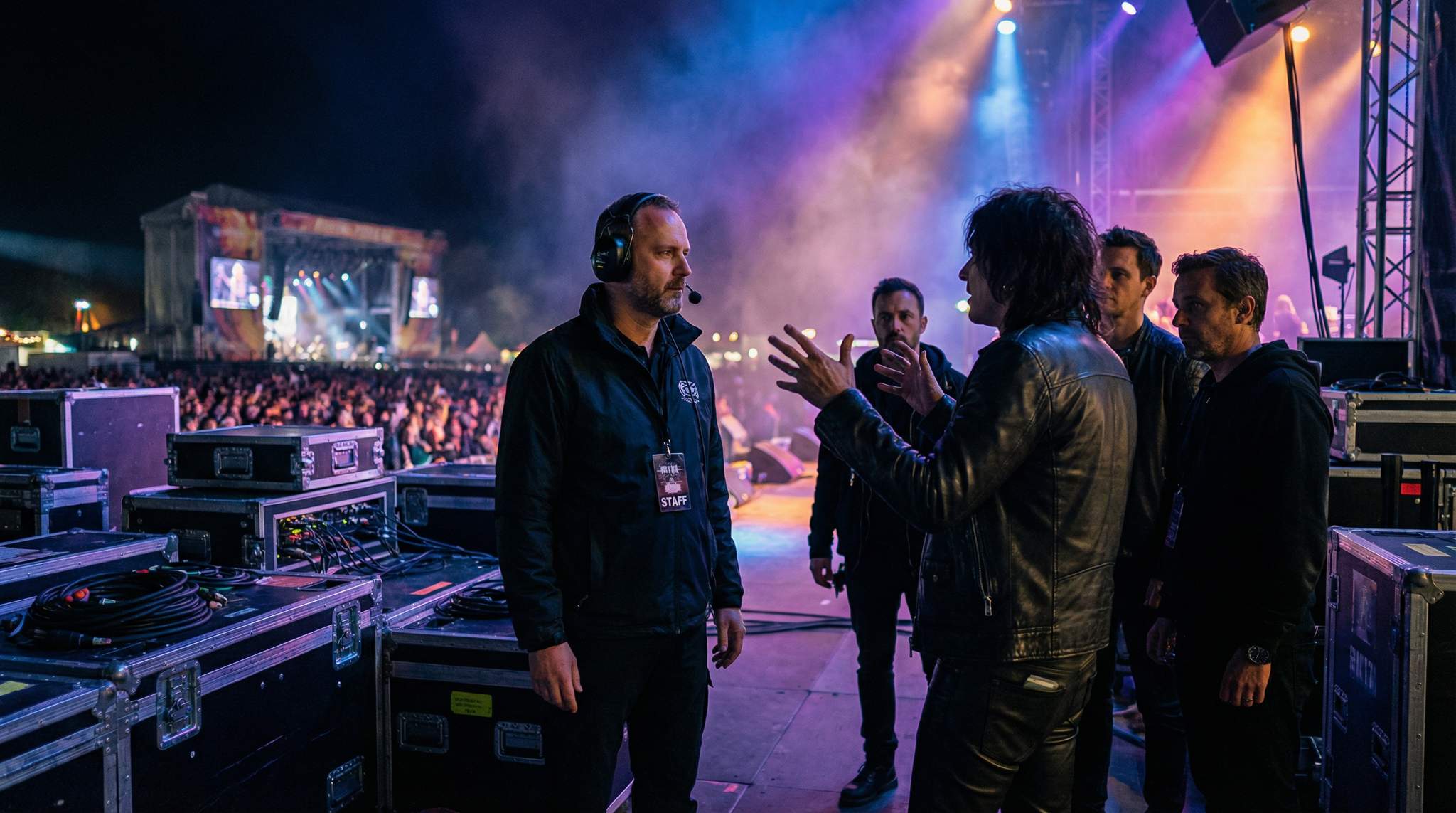Introduction
Staging a festival is not just about booking artists or vendors – it also means navigating a maze of permits and licenses. Securing the proper permits is absolutely critical to avoid last-minute shutdowns or legal penalties. Festivals large and small must comply with local regulations ranging from crowd size and noise levels to food safety and alcohol distribution. Early coordination with authorities can make the difference between a smooth event and one plagued by legal roadblocks. This guide provides an overview of common permits and licenses needed for festivals, along with practical advice on timelines and working with local agencies.
Common Permits and Licenses for Festivals
A festival organizer must obtain various permits and licenses to ensure the event is legal and safe. The exact requirements will vary by location and festival type, but commonly include:
- Mass Gathering or Special Event Permit – Required when hosting a large crowd beyond a certain size (often a few thousand attendees, depending on local law). This permit ensures the event meets health and safety standards for large groups.
- Noise Ordinance Waiver – Needed if festival activities (like loud concerts) will exceed local noise limits or extend into quiet hours. This waiver allows higher sound levels or later curfews than normally permitted.
- Health Permits for Food Vendors – If food or drinks are served, each vendor and the event itself may need health department permits. These ensure proper food handling, sanitation, and facilities (hand-washing stations, water, waste disposal) to protect public health.
- Liquor License or Alcohol Permit – Mandatory for any event serving beer, wine, or spirits. It may be a temporary liquor license obtained by the festival or a requirement that all alcohol is served through licensed vendors under event-specific permits.
- Other Permits – Depending on the festival, additional permits might be necessary. For example, fire department permits (for tenting, staging, pyrotechnics, or open flames), building or electrical permits (for large stages, structures, or power generators), parking and traffic permits (for road closures or heavy traffic management), and environmental permits (if the site is environmentally sensitive).
Each of these permits addresses a different aspect of festival operations. Together, they ensure event organizers have plans in place for safety, noise control, sanitation, and legal alcohol distribution.
Mass Gathering Permits: Managing Large Crowds
A Mass Gathering Permit (sometimes called a Special Event Permit or Public Assembly License) is often required for festivals above a certain attendance threshold. Local regulations define what counts as a mass gathering – for example, a county might require a permit if attendance will exceed 1,000 or 5,000 people. This permit typically involves submitting a comprehensive event plan covering:
- Site Layout & Crowd Control: How the venue will accommodate the expected crowd, including fencing, entry/exit points, and emergency evacuation routes.
- Sanitation & Health: Provision of restrooms, hand-washing stations, drinking water, and waste management to handle the crowd size. Some jurisdictions require a specific number of toilets and sanitation facilities per number of attendees.
- Medical & Emergency Services: Plans for on-site medical tents or first aid, ambulance access, and coordination with local EMS and police. Authorities will want to know how organizers will handle medical emergencies or security incidents in a large crowd.
- Security & Staffing: The number of security personnel, crowd managers, and volunteers to keep things orderly. There may be mandated ratios of security staff to attendees for large events.
Mass gathering permit applications can be extensive. Authorities may ask for detailed maps, insurance certificates, emergency plans, and even proof of neighbor notifications. Early submission is key – processing can take weeks or months, and officials might request revisions or impose conditions (like hiring more EMTs or renting extra toilets). Successful festival producers often start the mass gathering permit process 6–12 months in advance for major events. Early coordination with local officials helps address concerns proactively; for instance, one music festival worked closely with the county a year ahead, which helped them design better traffic flow and meet all safety requirements well before showtime.
Planning a Festival?
Ticket Fairy's festival ticketing platform handles multi-day passes, RFID wristbands, and complex festival operations.
Noise Ordinance Waivers: Turning It Up to Eleven (Legally)
Live music festivals and late-night parties can easily clash with local noise ordinances. Most cities and towns have strict laws about sound levels (measured in decibels) and curfew hours for amplified music. To avoid fines or shutdowns due to noise complaints, festival organizers often seek a Noise Ordinance Waiver (also called a noise variance or exception).
When applying for a noise waiver, organizers should detail the expected decibel levels, performance schedule, and how they will minimize impact on the surrounding community. For example, the application may include:
- Event Dates and Times: Specify which days and hours the high-volume activities will take place (e.g., music until 11 PM on Friday and Saturday).
- Sound Management Plan: Outline measures to control sound, such as speaker orientation (pointing away from homes), using sound barriers or acoustic shielding, and having a professional sound engineer to monitor levels.
- Community Notices: A plan for informing nearby residents in advance – for instance, sending mailers or hosting a community meeting to address concerns. Showing goodwill by communicating early can encourage authorities to grant a noise variance.
- Contact Information: Provide a hotline or contact person residents can reach during the event if noise becomes an issue, demonstrating that the festival will be responsive to complaints in real time.
Timing is crucial: noise variance requests might need to be approved by a city council or a special board, which could meet infrequently. A savvy organizer will file for a noise ordinance waiver several months before the festival, ensuring it makes the agenda of any required public hearings. In one case, a regional festival nearly had to cut its headline act because the noise permit came through at the last minute – a risk that underlines why submitting a thorough application early (and staying in touch with officials) is essential.
Health Permits and Food Safety: Feeding the Masses Responsibly
Food is often a highlight of festivals – from food trucks, to local restaurant booths, to beverage stands. But along with tasty options comes the responsibility of food safety. Most jurisdictions require Health Permits for any event with food service to the public. There are usually two levels to consider:
- Festival Health Permit: The event organizer might need a temporary event permit from the local health department that covers the overall festival. This permit application ensures the festival as a whole has adequate facilities (like potable water, waste disposal, grease collection for food vendors, and refrigeration if needed).
- Vendor Permits: Each individual food vendor may also need their own permit or food handler’s license. Vendors often must apply through the health department to be approved for the event, showing they have proper food safety training and will follow guidelines.
Health department inspectors will typically review the festival’s plans and may inspect booths on-site during setup or the festival itself. Organizers should facilitate this by scheduling a vendor inspection time before opening each day or on the morning of the event. To make the process smoother:
Need Festival Funding?
Get the capital you need to book headliners, secure venues, and scale your festival production.
- Provide Guidelines to Vendors: Early on, give all food vendors information about local health requirements (e.g., required equipment like sneeze guards, thermometers, gloves, or the need for a certified food safety manager on staff).
- Collect Vendor Info Early: Require vendors to submit their health permit applications or proof of licenses at least several weeks before the festival. Consolidate this info for the health department as needed.
- On-Site Facilities: Ensure there are shared facilities like hand-wash stations, waste water disposal, and electricity for refrigeration. Health officials will check for these basics.
- Plan for Inspections: Communicate with the health department to see if they will send inspectors and when. Being present to support inspectors and quickly address any issues can prevent a small violation from becoming a shutdown order.
Ignoring health permits can be disastrous – an otherwise great food & music festival could be forced to close its food courts if inspectors find unlicensed vendors or unsanitary conditions. On the other hand, a well-coordinated plan with local health officials builds trust. A seasoned festival producer might even invite the health inspector to review plans a few months out, allowing time to fix any layout issues (for example, adding more hand-wash sinks) long before the event.
Liquor Licenses: Legal and Responsible Alcohol Service
For festivals that plan to serve beer, wine, or spirits, obtaining the proper Liquor License (or temporary alcohol permit) is non-negotiable. Alcohol service is heavily regulated, and violations can lead to immediate shutdowns or even legal charges. The exact type of license or permit required depends on local laws and whether the festival organizer or vendors are serving the drinks.
Common scenarios include:
- Temporary Event Liquor License: Many places offer a special permit for non-profit organizations to serve alcohol at a special event. If a festival is run by or benefits a non-profit, this can be a route (often requiring all proceeds to go to that charity).
- Catering or Vendor License: Festivals can partner with a third-party caterer or bar service that already holds a liquor license. In this case, the licensed vendor obtains an event-specific permit or just operates under their license, following all rules (such as only their staff serving drinks, checking IDs, and not allowing outside alcohol).
- Festival Liquor License through Local Authority: Some cities/counties allow a festival company to directly apply for a temporary license to cover the whole event, especially if it’s a recurring event with a good track record.
Regardless of the method, there are stringent conditions to meet. Authorities will require details on how alcohol will be managed responsibly:
- Defined Beer Gardens or Alcohol Areas: Many festivals designate controlled areas for alcohol consumption (especially if the law doesn’t allow open carry of drinks everywhere). These areas need barriers and entry points with ID checks.
- Licensed Bartenders & Servers: All staff serving alcohol should be trained (and often certified) in responsible beverage service. Some jurisdictions require an alcohol service certification course.
- Security and Age Verification: Plan for extra security to prevent underage drinking or alcohol leaving permitted areas. Wristband systems (ID check once for 21+ wristband) and security at exit points are common requirements.
- Insurance Coverage: Liquor liability insurance is usually mandatory. The permit application might demand proof of insurance that specifically covers alcohol-related incidents.
The timeline for liquor licenses can be one of the longest. Some state liquor boards only meet monthly, and applications might need to be submitted 60–90 days in advance. There may also be a requirement to notify the public or obtain approval from local law enforcement. Seasoned producers advise starting the liquor license process as soon as the festival date and venue are set. It’s wise to have contingency plans too – for example, if a license is delayed, be ready to operate with a BYOB restriction or pivot to alcohol-free if absolutely necessary (though this is a last resort and underscores why timely licensing is so important).
Early Coordination with Local Authorities
One piece of advice echoed by every veteran festival organizer is: work hand-in-hand with local authorities from day one. Permits and licenses are not just paperwork – they represent the concerns and requirements of various agencies (police, fire, health, city officials, etc.) who all have a stake in the event’s impact on the community. Building a positive relationship with these stakeholders early will smooth the permitting journey.
Key steps for effective coordination include:
- Pre-Planning Meetings: Long before applications are due, reach out to city or county officials. A sit-down meeting to introduce the festival concept can identify all the permits you’ll need and any red flags. Many locales have a special events committee or liaison who can guide organizers.
- Regular Check-Ins: Once permits are submitted, keep communication lines open. Politely check on application statuses, be available to answer questions or provide additional documentation, and attend any hearings or meetings where your permit is discussed.
- Community Engagement: Show that the festival wants to be a good neighbor. This might involve meeting with neighborhood councils, or working with local businesses on mitigation plans (like scheduling deliveries at certain times to avoid traffic jams). Authorities appreciate when organizers take initiative to handle potential community issues – it makes approving permits easier.
- Flexibility and Compliance: Be prepared to adjust plans to meet official requirements. If the fire marshal says you need another exit or the health department demands more hand sinks, take it in stride and adapt. Arguing or evading rules will only harm your credibility. Successful producers treat regulators as partners in putting on a safe event, not as adversaries.
By coordinating early and often, you not only avoid last-minute surprises, but you also gain allies. There have been instances where a minor permit hiccup (like a missing signature) was resolved in hours because the organizers had established trust with officials. Conversely, festivals that kept authorities in the dark often faced harsher scrutiny and delays – or worse, permits denied outright. An infamous example was the attempted anniversary festival of a famous 1960s concert that fell apart in 2019 partly due to permitting issues; local officials denied the mass gathering license when organizers applied too late and with insufficient details. The lesson is clear: proactive cooperation with local authorities is as crucial to a festival’s success as talent booking or ticket sales.
Application Timelines: Plan Backwards from the Festival Date
When it comes to permits and licenses, timing can make or break your festival. Every permit has its own lead time and processing period. Savvy festival planners create a permit timeline working backward from the event date, often something like:
- 6–12 Months Before: Begin discussions with local officials. Identify all required permits and note their deadlines. Start the mass gathering permit and any major city event permit processes now, especially for large festivals.
- 4–6 Months Before: Submit applications for complex permits like mass gathering, special event, or liquor licenses if not already done. Some places need 90+ days, and earlier submission gives time for any corrections.
- 2–3 Months Before: Apply for permits that have shorter windows: noise ordinance waivers (often approved closer to the event but still require hearings), minor permits like tent or fire permits, etc. Confirm that vendors are working on their individual permits (food, alcohol vendor licenses, etc.).
- 1–2 Months Before: Follow up on all applications. Many permits might be approved around this time. Ensure insurance documents are in order (often needed before final permit issuance). Address any conditions officials attach to the permits.
- 2–4 Weeks Before: Final check on everything. Get actual permit documents or licenses in hand. Some late items like a day-of fire inspection or final health inspection can’t happen until right before or opening day – double-check those appointments are set. Also, use this time to remind staff and vendors of the rules attached to the permits (for example, noise cutoff times, alcohol service rules).
- During and After the Event: Keep permits on-site as required. Post any occupancy certificates or health permits visibly if mandated. After the festival, there may be follow-ups (like a post-event clean-up verification or returning a park to original condition if it was part of a permit agreement). Fulfilling these helps maintain a good reputation for next time.
By mapping out these timelines and integrating them into the festival’s overall planning calendar, organizers ensure nothing slips through the cracks. It’s far less stressful to submit permits early and have approvals in hand than to be chasing paperwork at the last minute.
Conclusion
No matter the scale – from a local community event to a 100,000-person mega-festival – proper permits and licenses are the backbone of a successful, lawful event. Navigating permits and licenses may not be the most glamorous part of festival production, but it is undeniably one of the most important. Every aspect of a festival – crowd size, noise, food, alcohol, structures – intersects with public safety regulations and laws. The next generation of festival producers should view permitting as a foundation for their event’s success. By understanding the common permits needed, starting applications well ahead of deadlines, and working collaboratively with local authorities, organizers can avoid legal roadblocks and focus on creating an unforgettable experience for attendees.
In the end, thorough permitting and licensing is about diligence and respect: respecting the law, the community, and the festival-goers’ safety. With good preparation and an open line to the officials who grant these permits, even first-time festival promoters can steer their events to a smooth, legally sound opening day. The most seasoned producers know this truth – and now, so do you, as you carry the festival torch forward.





